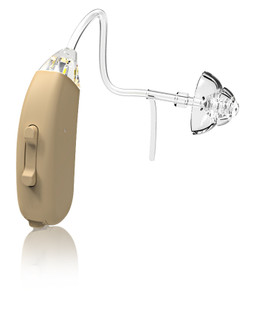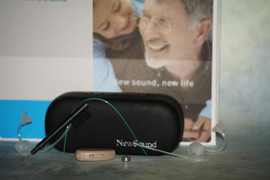Frequently Asked Questions about Hearing Health
Posted by DR Paul on Feb 08, 2024
Hearing loss is a common problem that can affect people of all ages. It can be caused by various factors, such as aging, exposure to loud noises, infections, and genetic conditions. Fortunately, modern technology has made it possible to improve hearing and quality of life for those who experience hearing loss. However, there are still many questions and misconceptions about hearing health that need to be addressed. In this article, we will answer some of the most frequently asked questions about hearing health to help you make informed decisions regarding your own or your loved one's hearing.
1.What causes hearing loss?
There are several factors that can cause hearing loss. The most common cause is age-related changes in the inner ear (presbycusis), which affects almost everyone over the age of 65 to some degree. Exposure to loud noise is another major cause of hearing loss, especially among workers in noisy environments such as construction sites or music venues. Other causes include ear infections, genetic conditions, head injuries, and certain medications.
2.How do I know if I have a hearing problem?
If you suspect that you or someone you know may have a hearing problem, there are several signs to look out for. These include difficulty understanding speech in noisy environments or when talking on the phone; asking others to repeat themselves frequently; turning up the volume on electronic devices such as TVs or radios; tinnitus (ringing in the ears); and feeling isolated or left out of conversations.
3.What are my options if I have a hearing problem?
If you have a hearing problem, there are several options available depending on the severity of your condition and your personal preferences. Hearing aids are the most common solution and come in many different styles and technologies to suit different needs and budgets. Other options include cochlear implants for severe cases of hearing loss and assistive listening devices such as personal amplifiers and captioned phones.
4.How can hearing aids improve my quality of life?
Hearing aids can improve your quality of life in many ways. They can help you hear sounds that you may have been missing, such as birds chirping or the sound of your grandchildren's voices. This can make social interactions more enjoyable and boost your mood and well-being. Hearing aids can also help prevent cognitive decline by keeping the brain active and engaged with sound stimulation. Additionally, they can improve safety by allowing you to hear warning signals such as sirens or alarms.
5.What should I consider when buying a hearing aid?
When buying a hearing aid, there are several factors to consider. These include the severity of your hearing loss, your lifestyle and preferences, the type of technology you prefer (such as digital or analog), the style of the device (such as behind-the-ear or in-the-ear), and your budget. It's important to work with a qualified audiologist who can guide you through the process and recommend the best solution for your needs.
Conclusion:
Hearing health is an important aspect of overall well-being, yet it is often overlooked or misunderstood. By understanding the causes of hearing loss, recognizing signs of hearing problems, considering available options for treatment, and choosing the right hearing aid, you or your loved one can enjoy improved quality of life and stay connected with friends and family. If you have any further questions about hearing health or need assistance finding a qualified audiologist near you, don't hesitate to reach out for help!










